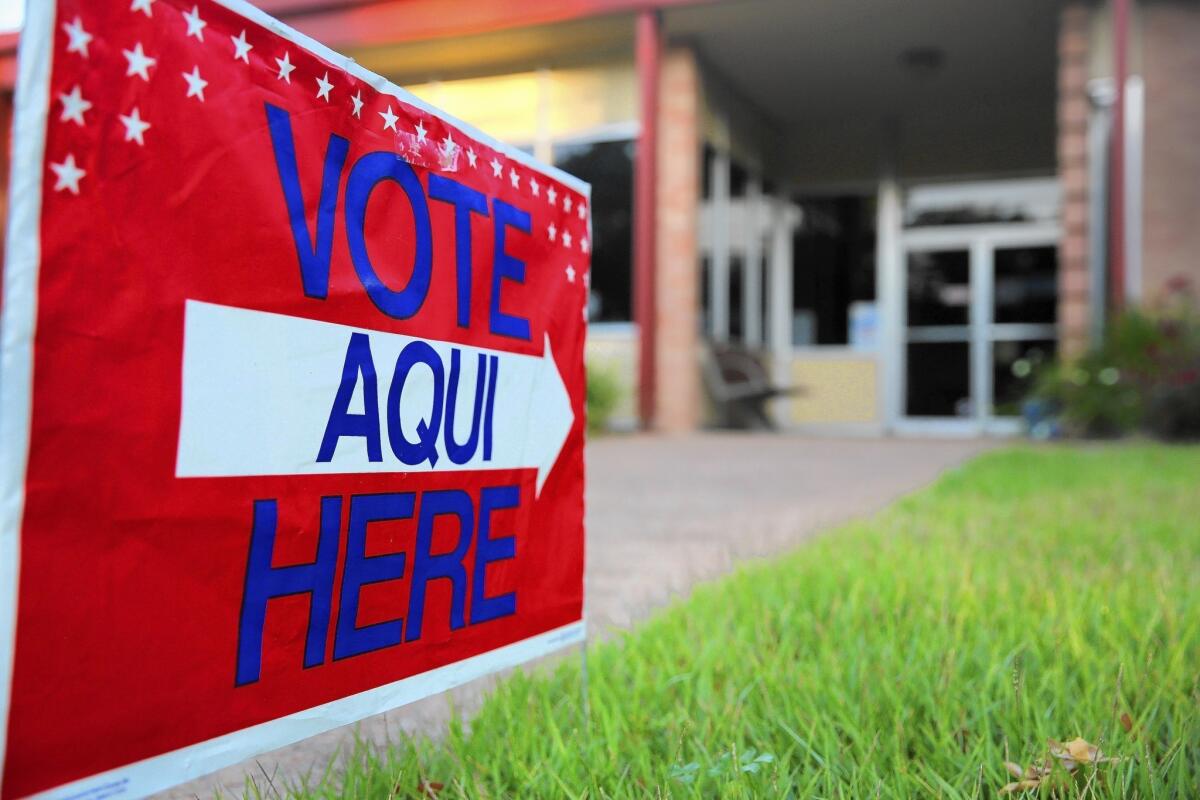Letters to the Editor: ‘Latinx’ sounds inauthentic, but let’s talk about what we call ourselves

- Share via
To the editor: Thank you for Benjamin Francis-Fallon’s op-ed article on the emergence of the word “Latinx” to identify those of us who have roots in Spanish-speaking countries. While I am skeptical of the “Latinx,” I believe Francis-Fallon’s article is important because it contributes to the discussion about “what we call ourselves” and, inevitably, what others call us.
I was born during the Eisenhower administration. In elementary school I was Mexican. In high school I was Mexican American (without the hyphen).
As an undergraduate in college I became a Chicano. It was a conscious choice, a decision that evoked my history, progressive political persuasion and the artistic-cultural milieu that I embraced. The main point is that I chose what to call myself.
When I was a graduate student in an Ivy League school, we suddenly became “Latino.”
In the last several years they’ve tried to describe us, variously, as Spanish-speaking (although some aren’t), Hispanic, Latino, “Latin@” (I’m not kidding) and now “Latinx.” I suppose we do need an all-inclusive term to include Tejanos, Puerto Ricans, Cubans, Dominicans, Central Americans and the occasional Spaniard, but I’m not sure “Latinx” is the way to go.
Gender-driven languages present particular problems to overcome. Yet, language is a living, evolving phenomenon. Let’s see how it mutates.
(I still call myself a Chicano, by the way.)
Luis Torres, Pasadena
..
To the editor: My grandmother objected to the term “Latino.” She would ask, “What’s wrong with being a Mexican?”
From her perspective, “Latino” was disrespectful to our Mexican heritage and failed to take into account the rich diversity of all the cultures in Latin America. She believed it was a term meant to accommodate the willful ignorance of white Americans regarding the geography south of Tijuana.
“Latinx” is culturally inauthentic. It is assimilationist, and it panders to the politically correct lexicon of the “woke” white progressives. To me, the term denigrates our culture.
Steve Martin, West Hollywood
More to Read
A cure for the common opinion
Get thought-provoking perspectives with our weekly newsletter.
You may occasionally receive promotional content from the Los Angeles Times.









